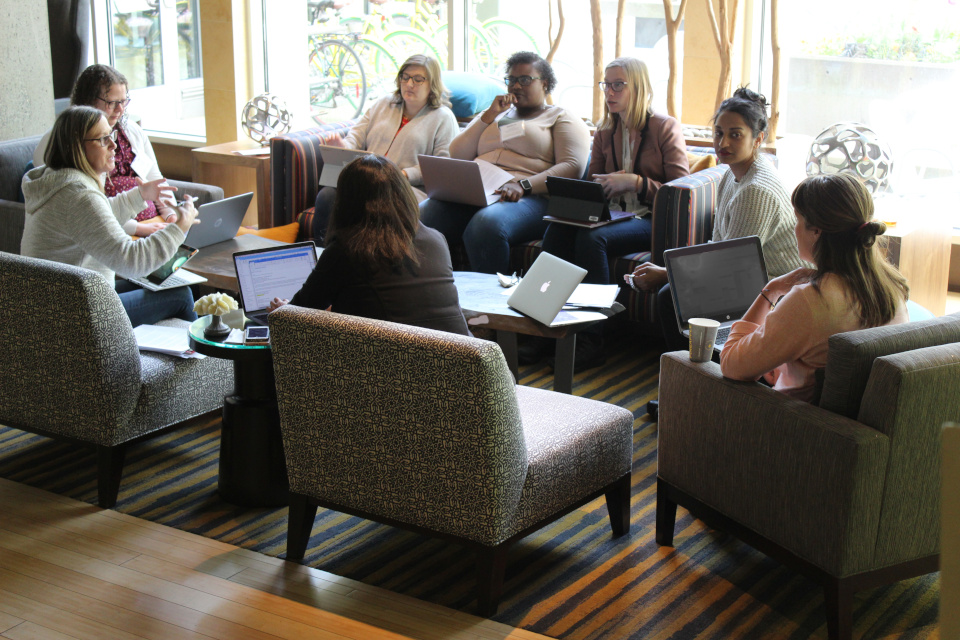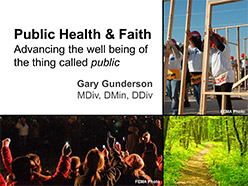
The Hot Topics in Practice webinar series recently celebrated 200 episodes.
In conjunction with this anniversary, NWCPHP is releasing And We’re Live: Creating Engaging Public Health Webinars, a new guide to help busy public health professionals develop training and learning opportunities for their students, staff, or community partners.
The end-to-end checklist will help you think through the key components for building webinars, from the initial planning stages to the wrap-up. And it can be especially helpful for small agencies and groups.
“Don’t be discouraged if you don’t have a large team,” said Training and Outreach Manager Barbara Rose. “This checklist will help you break down the production process into smaller, more manageable steps and help you consider what’s absolutely necessary for building an effective, inclusive webinar with limited resources.”
“We are a small team ourselves, so we’ve tried to visualize the production process from an all-hands perspective,” said Instructional Designer Kevin deVoss. “This process is actually not that difficult so long as it is done collaboratively.”
Collaboration has always been an important theme for Hot Topics, which began in 2004 in the wake of 9/11. The devastating event prompted an influx of federal funding to strengthen and unify the knowledge and infrastructure related to preventing bioterrorism and other emergencies. The series originally focused on stories and best practices for working on these issues across disciplines and agencies. Notably, during the current pandemic, the first webinar was about SARS, a respiratory disease associated with coronaviruses similar to COVID-19.
Back in the early 2000s, more people were beginning to use distance learning and the field was still in its infancy. Today, the team notes some important changes to their approach.
"We’re always looking for ways to make our webinars more inclusive, accessible, and informative," said Graphic Designer Wes O’Seadna. "Diverse representation is really important to us and our audience and factors into our choices in lots of ways, including the images we choose.”
The reflective questions in the new guide will help others do the same.
Despite many developments in technology and topics over the years, some elements of the series remain the same. For example, the “hottest” topics — those ripped from the headlines — often bring in the most viewers and the highest ratings. Another constant is people’s desire to connect with colleagues in real-time.
“Even though public health professionals are very busy, they still like attending live events,” said Evaluation Manager Megan Rogers. “This is especially true for people in small organizations and rural areas, who usually can’t travel far for training. That was important at the time of our first webinar and it’s still important today.”
It’s no surprise that public health professionals tasked with supporting their communities like to keep informed about emerging issues, especially outbreaks and natural disasters. And this seemed especially true during the COVID-19 pandemic, as public health organizations responded to the ever-evolving events. To address this, the Hot Topics series covered many aspects of the pandemic in nearly every session this past year.
“The pandemic became a part of everyone’s lives and many people were stuck at home and looking for opportunities to connect with others or learn virtually,” said Kevin deVoss. “In our audience engagement questions, we sought to open up communication channels for folks and find out how they were adapting their practice to these changes.”
The series has come full circle for the 200th episode, returning to its roots of supporting the public health workforce during evolving emergencies. The April 2021 session featured a discussion about trauma-informed change management to promote more resilient public health organizations and teams during today’s trying times.
“In looking back on 200 episodes, we asked ourselves, ‘Are webinars still a relevant format for delivering timely, important information to public health professionals?,’ and the answer is yes,” said Barbara Rose.
Access the no-cost guide through PHLearnLink.
About Hot Topics in Practice
Hot Topics in Practice is a monthly webinar forum to discuss issues affecting public health practice.
Up to 1 CPH recertification credit may be earned by viewing each webinar. Visit the National Board of Public Health Examiners to learn more.


